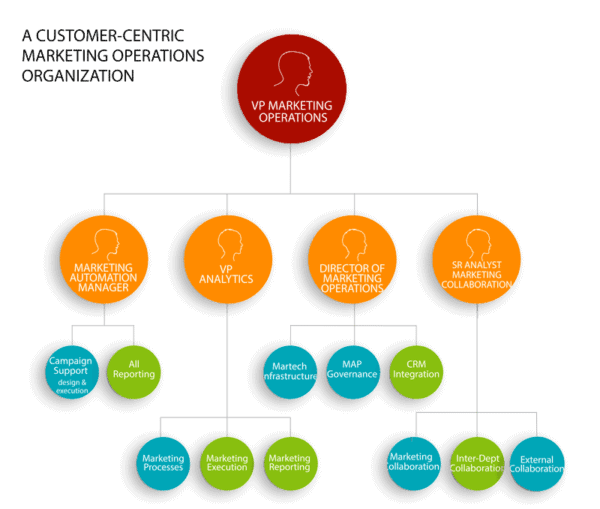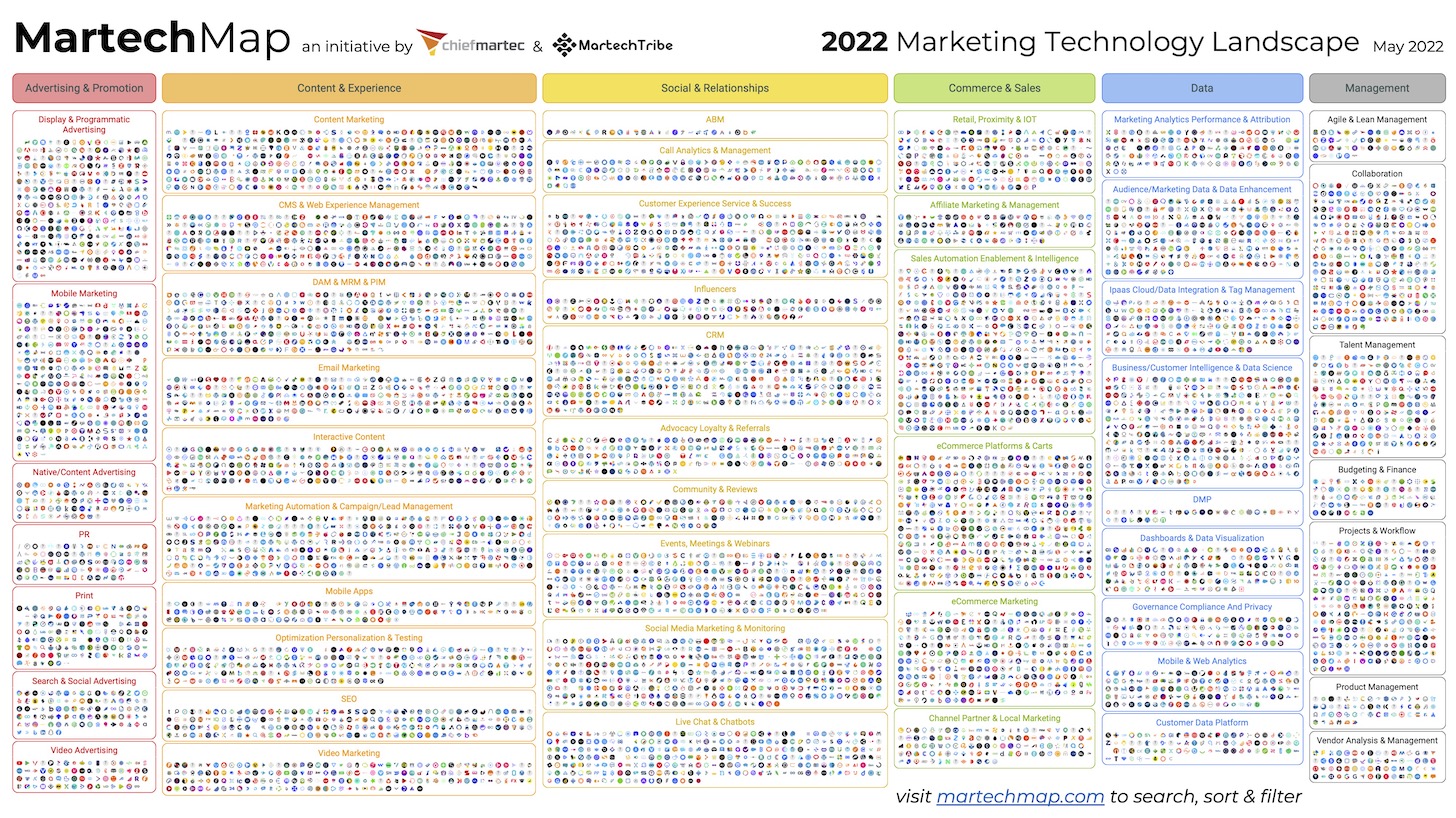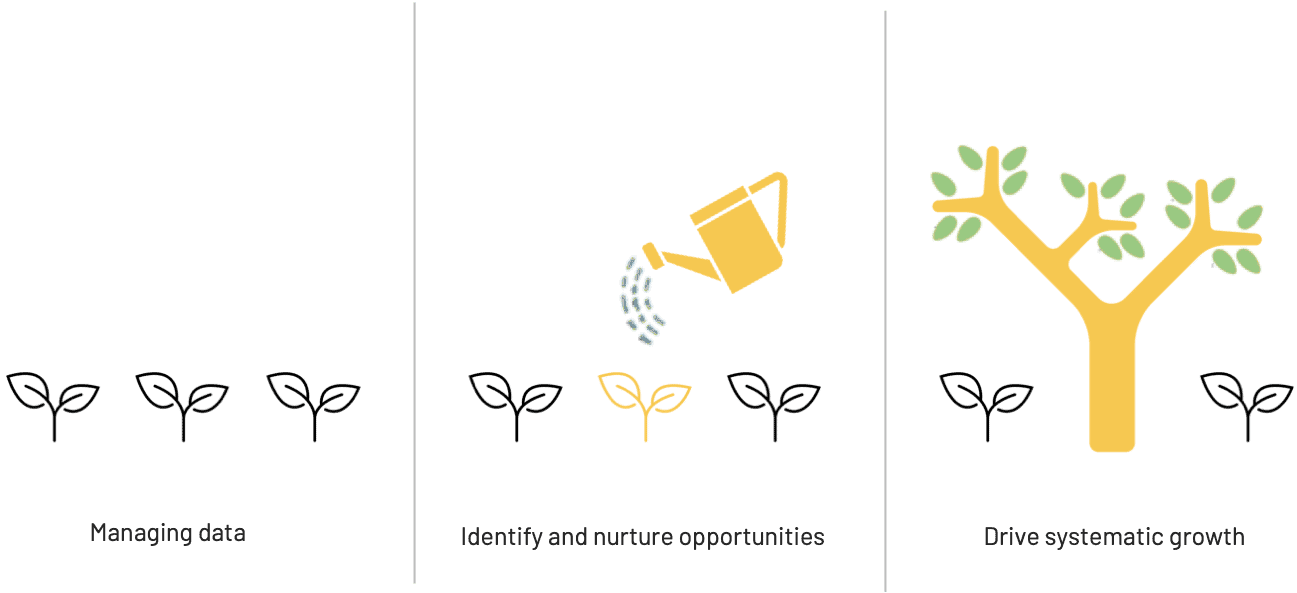Today, we’re diving into marketing operations. From highlighting the most effective MarTech tools to framework and process implementation, this blog will serve as your guide to marketing operations.
The Basics: What is Marketing Operations?
Before we get granular, let’s start with the basics. What is marketing operations?
Marketing operations is the all-encompassing term that binds together the planning, technology, data, and processes for optimal scalability. Marketing operations sets the direction for internal communications, workflows, and processes, allowing marketers to work with efficiency and effectiveness using proven frameworks and data analysis toward one common and defined business objective.
When done right, marketing operations is the driving force of innovation and growth within organizations.
Did you know? 93% of B2B marketers believe that marketing operations is important or critical in delivering digital transformation, according to a survey conducted by B2B Marketing.
Why is Marketing Operations Important?
- Grow Revenue: Marketing operations can impact revenue by gaining an increased understanding of customer interests and patterns. As a result, MOPs are able to generate higher-quality leads to pass on to the sales team.
- Improve Customer Experience: Genesys found that companies that make CX an investment priority have better revenue growth (59% vs 40%) and are more profitable (64% vs. 47%) than companies that don’t prioritize CX.
- Achieve Impact and Efficiency: According to Mckinsey, marketing operations provide a 15-25% improvement in marketing effectiveness.
What are Marketing Operations Teams Responsible For?
The 2022 Marketo User Study surveyed 200+ marketing operations professionals on their job responsibilities, goals, strategies, and challenges.
When asked what their primary job duties are, the report revealed these top three responsibilities:
- Campaign and lead management
- Marketing technology management
- Performance measurement, benchmarking, and analytics
So, how do marketing operations teams measure their success? The 2022 State of the Marketing Ops Professional report found the number one KPI for success in marketing operations is pipeline, followed by revenue objectives and velocity tracking between lifecycle stages.
How do Marketing Operations Teams Function?
MOps teams typically operate in one of three ways: in-house team, agency, or a hybrid of the two. A marketing operations team may look something like the graphic below, but keep in mind, no two organizations are the same.

Image Source: Business 2 Community
Organizations may consider factors like budget, recruitment, training time, and expertise to weigh the costs of hiring their own marketing operations talent or outsourcing to a marketing operations agency. Working with a marketing operations agency provides a wider range of resources and ensures that coverage is never an issue, while an in-house team may offer faster turnaround times and a better understanding of your organization’s brand identity.
If you’d like to meet in the middle, a hybrid approach allows for these teams to work together and oftentimes, results in lower costs.
Want a deeper understanding of the benefits of an agency, in-house, or hybrid approach? Be sure to check out the blog, “Should You Hire a Marketing Operations Agency or More Staff?”
💡 Did you know? according to marketingops.com, 65% of companies have a dedicated marketing operations individual or team, which typically range from 2-10 members.
Tools You’ll Use in Marketing Operations
The MOps tech stack can be complex, but we’re going to break it down into four categories. It comes as no surprise that our marketing automation platform of choice is Marketo, but it’s up to you to weigh the pros and cons of each. Every organization has different needs, so do your research and think of what’s best for your organization.
As a marketing operations professional, these are tools you’ll find yourself using most often:
Marketing Automation Platforms:
CRM Tools:
Integration Platform as a Service (IPaaS):
Marketo Integrations

As if you needed additional proof that marketing technology isn’t slowing down anytime soon: in just 2022, Scott Brinker’s Marketing Technology Landscape grew by 24% from 2020, resulting in 9,932 MarTech solutions.
💡 Did you know? Marketo, Pardot, and HubSpot are the top primary software platforms used by marketing operations professionals, according to marketingops.com.
The Benefits of Marketing Ops
MOps offer countless benefits to your organization, both internal and external. By developing a comprehensive marketing operations strategy, you’ll see your organization’s revenue grow, a strong ROI begin to flourish, and more transparent insights that will drive data-informed business decisions.

MOps doesn’t just benefit the marketing department – it drives growth across the entire organization.
Externally, implementing a MOps strategy will help your organization adapt to a data-first mentality. Conducting your marketing strategy with hard, proven data will help you reach your targets faster and offer a more effective use of time and budget.
Instead of looking like the trajectory on the right, you’ll reap the benefits of a more predictable, proven trajectory as seen on the left.

Image Source: Ian Sanders Medium
How to Implement a Successful Marketing Ops Strategy
At the basis of every MOps strategy are two things: processes and frameworks.
Frameworks and processes will enable your team to deliver flawless campaign or project execution and make new projects more seamless. We’ve developed several frameworks and processes:
- CRISP Framework: Automate your biggest process pain points with Workato. We provide five steps to open the door to automation. You’ll also receive a process automation worksheet that will help you and your team identify, prioritize and build processes that push the needle forward.
- SCORE Architecture Framework: Gain a solid foundation of Marketo knowledge and get on the fast track to success through our SCORE Architecture. This framework is based on proven best practices on more than 1,500 Marketo instances, and offers pre-built and pre-tested programs.
- Marketo Value Realization Framework: Marketers only utilize 58% of their MarTech’s stack potential. Our Marketo Value Realization Framework is designed to help organizations get the most out of their Marketo investment.
💡 Does your team struggle with campaign requests? Jeto empowers users to self-serve Marketo campaigns. All you have to do is submit your request, and Jeto gets to work automatically generating your Marketo program according to the parameters you provided. Easy as 1, 2, 3.
You could have all the right tools, processes, and frameworks, but without the right talent, you’ll find your organization falling short.
First, you’ll need to ensure you have adequate coverage. You don’t want employees to overextend themselves and work overtime – cue burnout and low morale.
Second, you’ll have to be sure your team is capable of understanding these frameworks and processes so that they are able to successfully implement them. For example, you wouldn’t have an intern trying to implement these frameworks if they have no experience with Marketo, and it may even be too much for one person to handle, even if they do possess the expertise.
💡 Learn how to build a resilient marketing operations team with insights from Senior Marketo Consultant Cyndi Marty. Read here!
The Leading Marketing Operations Resources
One unifying factor that all MOPs have in common is their hunger for knowledge.
Marketing automation technology is constantly evolving, and staying up to date with the latest releases and features will be crucial to your success. That’s why our team has compiled the five resources every marketing pro should know about. From YouTube channels and podcasts to Slack communities and regional groups, we’ve compiled the tools that will play an active role in your MOps success.
Does your organization need help achieving ROI from Marketo? Learn how the Marketo experts at MERGE can help. Contact us today!
